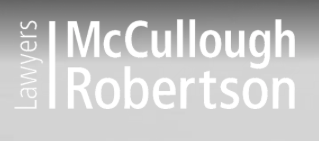
UK legal AI company, Luminance, has bagged another client in the Asia-Pacific region, this time in the shape of mid-size Australian law firm, McCullough Robertson, which is based in Brisbane.
The ‘Sunshine State’-based firm, which has around 45 partners, is another example of Luminance providing due diligence document analysis solutions to clients in the region, having previously won several firms from Singapore to New Zealand as customers, including: Gilbert + Tobin, Corrs Chambers Westgarth, Chapman Tripp and Rajah & Tann.

Why this pattern in terms of clients has evolved is not clear. One possible reason is the network effect of one independent firm taking up the AI doc review system for cross-border M&A work, which then triggers a referral partner in another jurisdiction that also handles M&A matters to do the same.
That is to say, there could be something of a network effect taking place, i.e. if firm A works on international M&A but is mainly in one jurisdiction and so works with firms B and C in locations where it does not operate, there may be a type ‘platform pressure’ for firms B and C to also take up the same technology to make working together more effective.
Moroever, clients that choose to work with single jurisdiction law firms i.e. ‘independent firms’, rather than global firms, may also want their team of law firms on an M&A deal to all use the same due diligence software. This is entirely possible as NLP systems such as Luminance are language and law agnostic, though clearly will need significant training to adapt.
For example, although Australia and Singapore are both English-language and common law nations, there may be some significant differences in their use of local legalese in particular areas of contractual law. Luminance’s NLP system will therefore have to be trained in each jurisdiction to adapt to this.
Kim Trajer, Chief Operating Officer at McCullough Robertson, said: ‘Our adoption of Luminance helps us deliver solutions that break with industry norms and unlock new opportunities and value for our clients.’
While Ron Dutta, Director of Information Technology at the Queensland firm, added: ‘We’re excited to adopt Luminance and manage document reviews with a truly global view of the data room.’